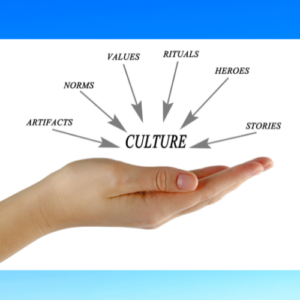09 Aug The Soft Power of Corporate Culture
How corporate culture can enhance or derail creativity, performance, and collaboration
In recent email exchanges with a leader in one of the world-class institutions in his country, I asked why other institutions in his country aren’t taking lessons from his company’s success.
He lamented: “We have done our part. We’ve been sharing our experiences. The challenge is when these leaders (who gained access to our top leadership) go back to their organizations, they couldn’t implement whatever they had learned…”
We at Success Pathways have had the same frustrations for years…
Our programs are working. We are getting overwhelmingly positive feedback.
 Paradoxically, however, our clients are struggling to implement everything they have learned from our programs. Programs that empowered them on how to:
Paradoxically, however, our clients are struggling to implement everything they have learned from our programs. Programs that empowered them on how to:
- Set their priorities and meet their goals,
- Craft and implement their strategies,
- Measure performance and increase productivity,
- Turn conflicts into opportunities,
- Initiate and lead change effectively,
- Stimulate creativity and incentivize innovation, and so on.
Getting glowing compliments and testimonials
Here are some facts about our programs:
- Most of our coachees and trainees find our programs empowering and transformative.
- On the evaluation forms, on average, we keep getting above 4.7 out of 5.
- Many give us lustrous compliments at the end of our programs.
- We get glowing testimonials from many clients.
- Some refer us to their peers and partners.
Let me expand on the feedback we get at the end of our programs. Traditionally, we don’t close our programs without giving participants a chance to reflect on what they learned and a couple of things they would do differently going forward.
Most participants engage in this process and share what they plan to do right away when they return to their workplace.
- We can feel their enthusiasm and determination through their voice.
- They are genuinely eager to practice what they learned right out of the gate.
- We hear them vow to bring meaningful and lasting change in their personal and career lives when they go back home and the workplace…
Experiencing pushbacks and setbacks
Unfortunately, when we follow up with our clients and meet repeat participants, we keep on hearing many of them saying: “I:
- Hoped to bring transformation right away, but I found myself up against the wall.
- Kept getting pushback.
- Experienced uphill battles, unable to translate the learning into practice.
- Lacked support from my superiors and peers…”
We rarely hear our clients and participants complaining about our content or style of delivery. They come back repeatedly to get our services because they know these programs work. Otherwise, why they should spend thousands of dollars and let go of opportunity costs by sending their best people removing them from what they’re doing to sit in a classroom for hours?
By now, you may wonder: “If your programs and deliveries are transformative and the audiences are committed, what is missing?”
You may further ask: “Why do your participants fail to implement what they learned and bring change in the workplace as they desired? What is coming in the way?”
The soft power of culture
Legit questions!
The answer is simple! Culture happened! It has soft power!
No wonder why the father of modern management- Peter Drucker, declared: “Culture eats strategy for breakfast!”
Whatsoever abundant finance, intelligent people, the latest technologies, and creative strategies a team or an organization may have:
- Without a robust and vibrant culture, one can’t leverage all these resources.
- Without the proper context, content alone doesn’t benefit the owner of any good content.
- Without an underlining supportive culture, no team or organization maximizes its resources, and knowledge, and taps into its comparative and competitive advantages. And our clients aren’t exceptional!
That is why many of our clients struggle to experience lasting and sustainable changes.
Their culture could be dysfunctional.
- One or more counterproductive cultural values may exist, or
- There may be a lack of one or two crucial values that could have supported the desired changes, or
- Both!
Without removing these disempowering cultural values and adopting the ones that are empowering, an organization or a team can’t enjoy lasting changes and transformations. Impossible!
By the way, many leaders downplay when we tell them that their culture could be the culprit why they were unable to experience transformation and lasting change.
Why go far? Many readers of this blog may shrug off the idea of their culture being the root cause of why they’re not experiencing the transformation they’ve been invested in and waited for years if not decades.
That is the soft power of culture. It enslaves those who aren’t conscious of its power at the subconscious level.
These self-unaware leaders demonstrate blind loyalty to their culture and never question it. This is my hope that you are different. You will take time to see if your culture is operating optimally and whether it may need reform, or at least, pruning. More on this later…
Encouraging organizations to create a dynamic and vibrant culture
 Knowing this soft power of culture and how it enhances or derails creativity, performance, and collaboration, we at Success Pathways LLC have a consulting service dedicated to transforming cultures.
Knowing this soft power of culture and how it enhances or derails creativity, performance, and collaboration, we at Success Pathways LLC have a consulting service dedicated to transforming cultures.
We understand that reforming a culture or creating a brand new unique corporate culture that inspires, engages, and gives a competitive edge is challenging, to say the least. You need some support from learning organizations like ours.
We want teams and organizations to benefit from this consulting service. We are committed to helping our clients transform their culture and, in turn, transform their people and, ultimately, their organizations or community.
We want our clients to recognize and address the underlining cultural issues to fully benefit from investing in their people by signing up for our programs. Deep inside, we know that:
- Unless they disown and disband corporate values that antagonize and derail their change agendas, they won’t see the transformation they have been waiting for so long.
- Until they embrace new cultural values that promote and foster the anticipated change they would like to see in their people and organization, they won’t get any ROI they deserve!
They’ll be wasting their time, energy, and other resources…
Pause and audit your culture, and ask these and similar other questions:
- What are some of the underlining cultural values that we may still honor, that don’t support what we would like to see happen in our organization now and in the future?
- How can we tone down and ultimately disown these counterproductive values that are no more relevant to what we do and who we would like to become?
- What corporate values might be missing that could have accelerated our progress?
- How can we impart and align our people, brand, products, services, and partnerships along these values?
By the way, if you need help in transforming your people and then your organization by creating a unique culture or reforming the existing culture and making it vibrant which in turn:
- Increases PRODUCTIVITY,
- Improves COLLABORATION,
- Elevates MORALE,
- Creates SYNERGY and HARMONY within a SHORT TIME, giving you a huge COMPETITIVE ADVANTAGE, reach out to our team. To learn more about our consulting services, check this page: https://www.successpws.com/consulting
Some considerations to benefit from the soft power of culture
Even if you may not think your culture could be the underlining problem of why you’re not meeting your grand goals, be skeptical just for a couple of minutes.
Even if you don’t believe your culture is a conducive environment and harbors toxic conflicts, responsible for the lack of synergy, backbiting, scapegoating, poor performance, and high turnover, just be patient with me and consider the following three suggestions.
1. Use culture as your competitive edge. What are the competitive advantages that differentiate you from your competitors? If a unique culture that defines who you are isn’t one of them, you’re missing a very powerful weapon of competition. You’re leaving lots of stuff on the table of competition. What is more? You’re neglecting a powerful ally that could enable you to survive and even thrive in the aftermath of any upcoming crisis or turmoil. A dynamic culture generates loyalty! Study those all-time successful companies- organizations that thrive even in bad times. They have a unique and vibrant culture to which most of their people demonstrate unwavering loyalty. People decline higher salary rates and tempting perks offers from somewhere to stay in such lively cultures. Many may forfeit, whenever necessary, their next raise or even salary when these organizations are in deep trouble. They don’t jump ship when they sense their organizations are struggling.
2. Invest in it. By now, you may be convinced that culture can actually enhance or derail creativity, performance, and collaboration and determines your organization’s or team’s competitive edge. If so, invest in creating and sustaining a unique culture that gives you a competitive edge and generates loyalty.
3. Audit your culture. The starting place to invest in your culture is to audit it. Even if you don’t think your underlining corporate culture is rotten or dysfunctional yet, at least audit and evaluate it and see if it is operating optimally. You can’t auto-pilot culture. You can’t plant your seeds, forget about them for a while, and come back to harvest. Weeds will take over your farm. Weeds don’t need any nurturing. They pop up and suffocate your plants and deny you a good harvest. Likewise, if you don’t take care of and nurture your culture, ‘weeds’ take over, and it becomes dysfunctional, causing havoc such as high turnover, increased conflicts, poor performance, and so on. Most cultures were great when they were first configured and launched. Unfortunately, many leaders let their cultures unattended and pay dire prices. They forget to keep auditing and reconfiguring. They allow chance to dictate their fate. They somehow assume that culture could autopilot itself and support them in arriving at the desired destination.
4. Prune or reform your culture. Depending on your auditing, you may decide to prune or reform your culture. Your culture could be healthy and vibrant, helping you pursue your mission and meet your goals. That is great! Keep nurturing and sustaining it. However, if some unwanted cultural elements are coming in the way of meeting and exceeding your own expectations, it is time to prune your culture. Pruning your culture doesn’t take overhauling the entire organizational culture. It can be done without lots of disruptions and minimal resources. Well, if your audit shows that your culture is dysfunctional and breeding conflicts, backbiting, scapegoating, disenfranchising, poor performance, high turnover, and so on, this is the time to reform it! Whether you need our support to prune or reform your existing culture, we are an email away.
 Please share in the comment area what you have learned from this blog and what you will be doing to tap into the soft power of culture.
Please share in the comment area what you have learned from this blog and what you will be doing to tap into the soft power of culture.
We would also like to hear your culture-related stories. What are you doing to prevent your culture from becoming dysfunctional? How have you created and sustained a vibrant culture that fosters harmony, synergy, productivity, and collaboration?
If you may have any questions or would like us to arrange a half or full-day workshop or webinar on culture or support you establish or reform your culture using our consulting service, please reach out at info@successpws.com
